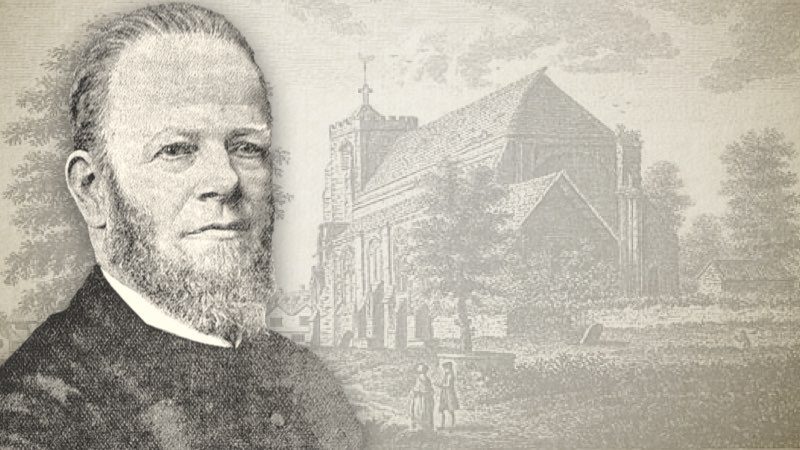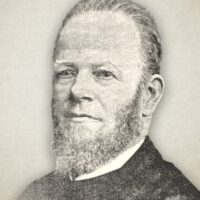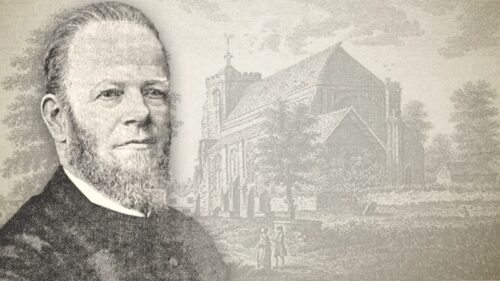
Public Worship
One of the many painful evidences of spiritual declension in numbers of our Churches today is the indifference of not a few professed Christian friends to the public means of grace. A great many persons do not accustom themselves to attend public worship more than once on a Lord’s-day, and rarely, if ever, on a week evening; and others still more indifferent enter the courts of the Lord only once or perhaps twice in the course of a month, and mostly not then till after the service has begun. A lover of the house of God who always used to attend public worship with great punctuality, and took care to be in time, was once asked how it was she could always come so early. She answered very wisely, “That it was a part of her religion not to disturb the religion of others.” We venture to mention these solemn facts as before God, in the most tender and sympathetic spirit possible, praying that all negligent and lukewarm Christians may be brought to see the necessity of a more regular attendance at the house of prayer.
“See! Satan’s slaves to scenes of riot go,
By day and night, through rain, or hail, or snow!
And shall some visitor, or worldly care,
Detain believers from the house of prayer?”
We, of course, make allowance for friends living at a distance and those who have weak and sickly bodies, and cannot conveniently leave their abodes. We are also most anxious not to wound the feelings of the feeblest lamb in God’s fold, and would therefore not assert knowingly anything rashly; nevertheless we must be honest to our convictions in the matter.
In times of open persecution for Christ’s sake, Christians (not under episcopal jurisdiction) frequently suffered much, and would often travel far, even to out-of-the-way places of worship, which they would now utterly despise. We have, however, been astonished at the great distance country friends will now walk, through all sorts of weather, to hear the truth preached in crowded places, while others (supposed lovers of the Gospel) living close at hand hardly ever attend. London Churches are more conveniently situated, and facilities for reaching them are within the compass of the poorest of the poor, which, although beneficial in some respects, often proves the reverse in others. The easy access to places of truth in many cases creates a spirit of unrest in persons who are fond of changes, and hence it is more difficult for London pastors to hold their respective positions successfully than those in remote parts of the country. There are other friends who say they can read and study God’s Word quietly in their own homes, and so excuse themselves in not attending public worship; but the question may be asked, Do they as a rule find opportunity for doing so? Satan, we believe, is far too busy an enemy of true believers to allow them (when physically well) to settle down for any length of time to the reading of the Bible in private when they ought to be in the house of God. Good old Gurnall was quite right when he said: “He that readeth sermons and good books at home, to save his pains of going to hear, is a thief to his soul in a religious habit. He consults for his ease, but not for his profit; he eats cold meat when he may have hot; he hazards the losing the benefit of both, when he may have one.”
Although we do not regard times and seasons as the ancient Jews did under the covenant of works, nevertheless we esteem the Lord’s-day, or the first day of the week, as a day of rest, and a great national privilege, as it affords an opportunity for worshipping God publicly, and hope it will never be so sadly desecrated in this country as on the Continent. The Lord’s-day is a festival commemorative of the victory of Christ over His foes. It is a day of association with the saints, and often proves the vestibule of immortality and glory. The apostle’s exhortation to the Hebrews (10:25) is too much overlooked today by self-indulgent persons, who invariably complain of spiritual leanness. “The assembling together” publicly for Christian communion is an earnest of our being gathered together to Christ at His appearing.
Union in the best sense is strength, and continual assembling for divine worship and fellowship beget and foster love, and give oppotunities for provoking to good works, and neutralizing Satan’s devices. It is necessary that believers especially should assemble together for worship, as it is a God-ordained means for spiritual good. In attending the services of the sanctuary saints are often refreshed, comforted, and edified, and are sometimes the means of bringing ungodly persons within the sound of the Gospel. To wilfully forsake the house of God, is to forsake God, His ordinances, and His mercies, and to exhibit a worldly spirit rather than the spirit of Christ and His apostles. We have seen persons when poor in this world’s goods attend very humble places of worship where the truth is preached; and when God has prospered them, and they have become affluent in circumstances, they have forsaken the poor and lowly, and have causally mingled with a more influential circle of friends under a more refined ministry, and their families have followed them.
To carry out the primitive order of the Church, as recorded in 1 Cor. 16:1,2, believers should not only meet every “first day of the week” for worship (which, of course, should be the primary object of meeting together), but also for the purpose of contributing to the support of God’s cause, and the poor of the household of faith. A few godly brethren have adopted the ancient system of giving a tenth of their substance to the house of the Lord, but such examples of benevolence are not likely to be universally imitated by the labouring classes, although our Churches are mainly supported by them. It should be part of the religion of every believer to “lay by him in store [weeklyJ as God hath prospered him.” If friends would adopt such an excellent plan of giving, there would be little need of special meetings for raising money. We have known professed Christians actually in possession of great wealth give a penny to a public collection; and in one case a thoroughly well-to-do tradesman, who had just previously boasted of his high position, put a half-crown into the plate we were holding for a very poor cause, and to our astonishment he demanded two shillings and five pence change! We forbear making any further allusion to our friend’s meanness, but hope that hy this time he has learnt to value God’s truth at a much higher rate.
Beloved reader, may you never be permitted to sink so low as to slight public worship, or to look upon it as unnecessary. If you do not always profit as you could wish, consult the Lord and your own conscience about it. He alone can fit you for His service. If at any time you do not feel in a suitable frame of mind for worship, do not stay away, but go despite of your feelings; possibly a blessing may be in store for you. Do not forget the minister in your prayers; remember if you cannot pray for him, you have no right to expect God will bless your soul through him. However, the dear Lord does not always wait to be asked before He blesses His people. If the seats, or the majority of them, in the place where you desire to attend are charged for, and you have no means of paying for one, ask for a free seat, and do not be offended if you do not happen to secure the same one every time; you cannot reasonably claim one particular seat as your own if you do not hire it and pay for it. Should the chapel be supported without seat rents so much the better for you, and for other poor friends who may attend it. But kindly bear in mind God’s cause on earth cannot be carried on without pecuniary aid; also remember the words of the apostle in Heb. 10:25, and may you find it good to wait on the Lord in His sanctuary with His saints.
“Forbid it, Lord: revive Thy people’s zeal,
The lukewarm plague among Thy children heal:
Ye heirs of bliss, whom Jesus often meets,
Whene’re His house is open all your seats.”
Earthen Vessel 1891
William Winters (1834-1893) was a Strict and Particular Baptist preacher. In 1876, he was appointed pastor of Ebenezer Strict Baptist Chapel on Fountain Place, Waltham Abbey, where he remained until his death. He was also a religious journalist, historian of Waltham Abbey, bookseller, hymn-writer and editor for the Earthen Vessel, Gospel Herald and Cheering Words.




